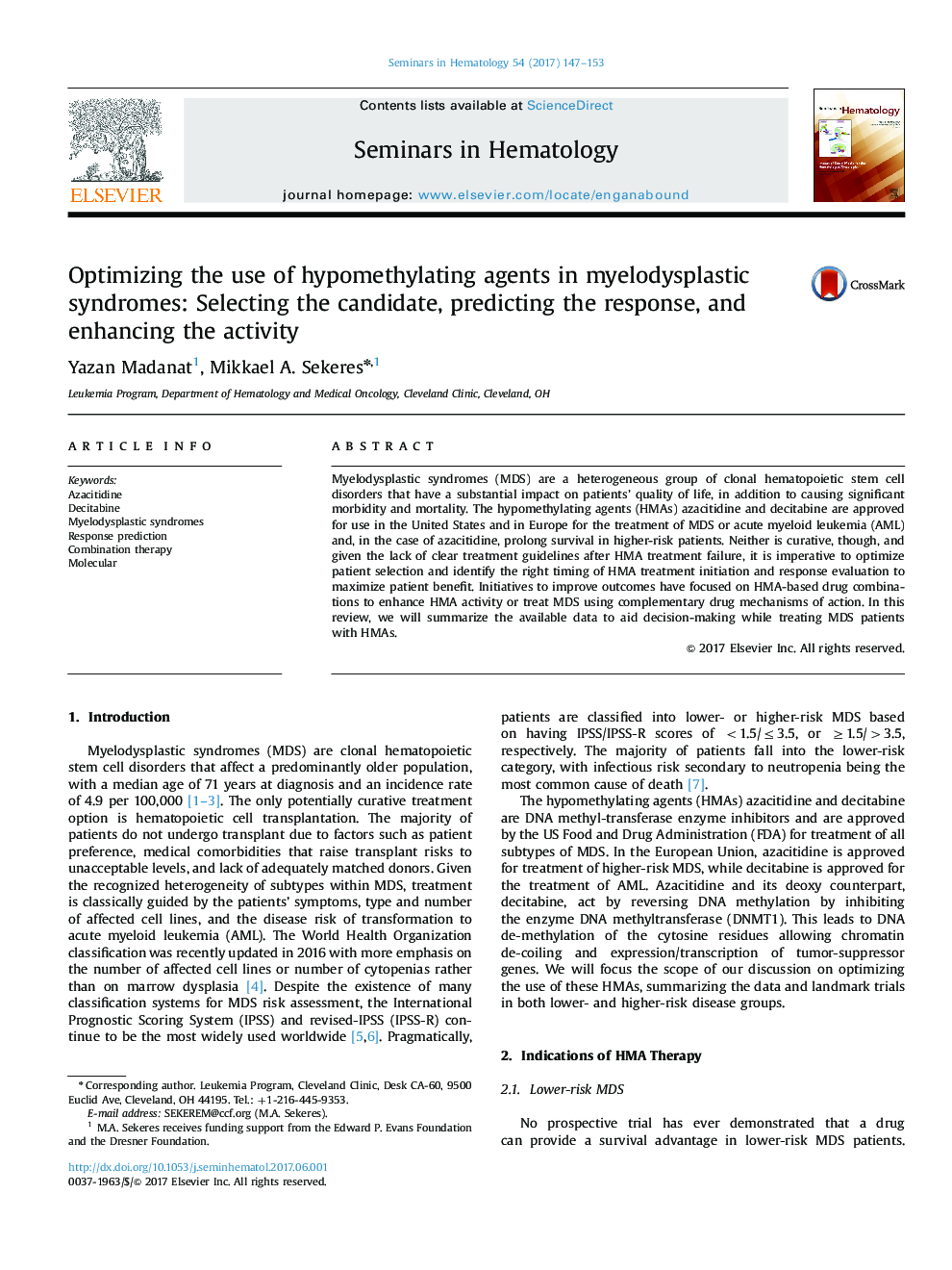| Article ID | Journal | Published Year | Pages | File Type |
|---|---|---|---|---|
| 5664393 | Seminars in Hematology | 2017 | 7 Pages |
Abstract
Myelodysplastic syndromes (MDS) are a heterogeneous group of clonal hematopoietic stem cell disorders that have a substantial impact on patients' quality of life, in addition to causing significant morbidity and mortality. The hypomethylating agents (HMAs) azacitidine and decitabine are approved for use in the United States and in Europe for the treatment of MDS or acute myeloid leukemia (AML) and, in the case of azacitidine, prolong survival in higher-risk patients. Neither is curative, though, and given the lack of clear treatment guidelines after HMA treatment failure, it is imperative to optimize patient selection and identify the right timing of HMA treatment initiation and response evaluation to maximize patient benefit. Initiatives to improve outcomes have focused on HMA-based drug combinations to enhance HMA activity or treat MDS using complementary drug mechanisms of action. In this review, we will summarize the available data to aid decision-making while treating MDS patients with HMAs.
Keywords
Related Topics
Health Sciences
Medicine and Dentistry
Hematology
Authors
Yazan Madanat, Mikkael A. Sekeres,
